2021 was a year in which Halifax’s best startups excelled
June 1, 2022
By Peter Moreira
The dominant feature of the Halifax startup community in 2021 was the strong growth of growth-stage companies, and none exemplified this trend more than Dartmouth-based Meta Materials Inc.
The manufacturer of specialist synthetic materials had a transformational year as it listed on the Nasdaq stock market in New York through a reverse takeover, raising C$198 million in the process.
Of course, Meta was not Halifax’s only high-flyer last year. You could argue that CarbonCure was the company of the year in Metro Halifax after it won US$7.5 million in the first Carbon XPRIZE, or that the honour should go to Dash Hudson, which quietly continued to grow its customer base to a dizzying degree. Maybe the gold medal should be hung around the neck of Novonix Battery Testing Solutions, a Dal spinoff that is now the centrepiece of Australia-based Novonix Ltd., which is valued at about C$3 billion.
Meta was able to raise a landmark funding round for itself, and its investors. And one of those investors, the provincially owned venture capital fund Innovacorp was able to sell its stake, pocketing a profit of $101 million. That profit went directly to the provincial government, marking the first time the Nova Scotia government had realized a direct gain from a startup investment.
In Entrevestor’s 2021 Atlantic Canada Startup Data report, we see that what mattered last year was big companies doing big things. The smaller or newer companies had a harder time of it, but it was a year in which scaling startups – those with their product in the market – moved the needle in Entrevestor’s data analysis.
For example, the innovation-driven companies in greater Halifax raised a record $307.5 million – a gain of 153 percent over the $121.7 million raised in 2020. Of course, Meta was responsible for about two-thirds of the total, but there were still 21 companies in HRM that raised at least $1 million each.
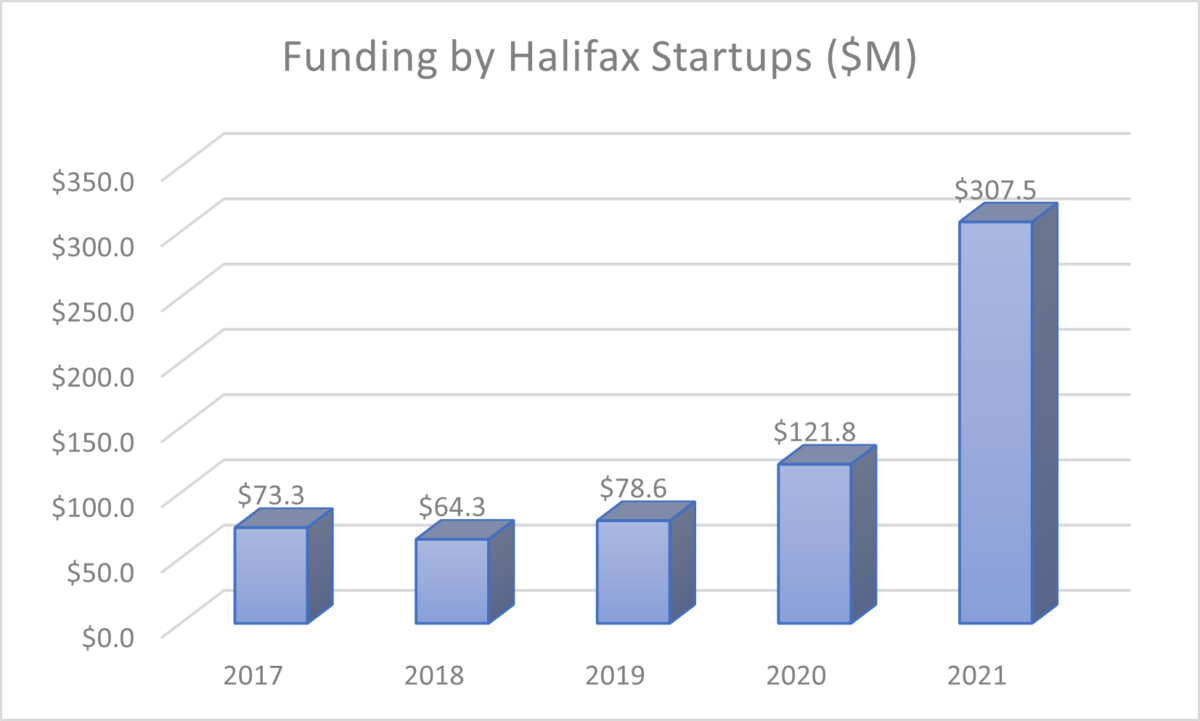
Dominated by the stronger companies, the city’s startups showed robust growth. They increased their employee base by about 34 percent to over 3,600 employees. Revenues increased 42 percent, and grew significantly stronger if we strip out companies whose sales exceeded $5 million. Exits were reported by eight companies including IT companies LeadSift and Medusa Medical Technologies.
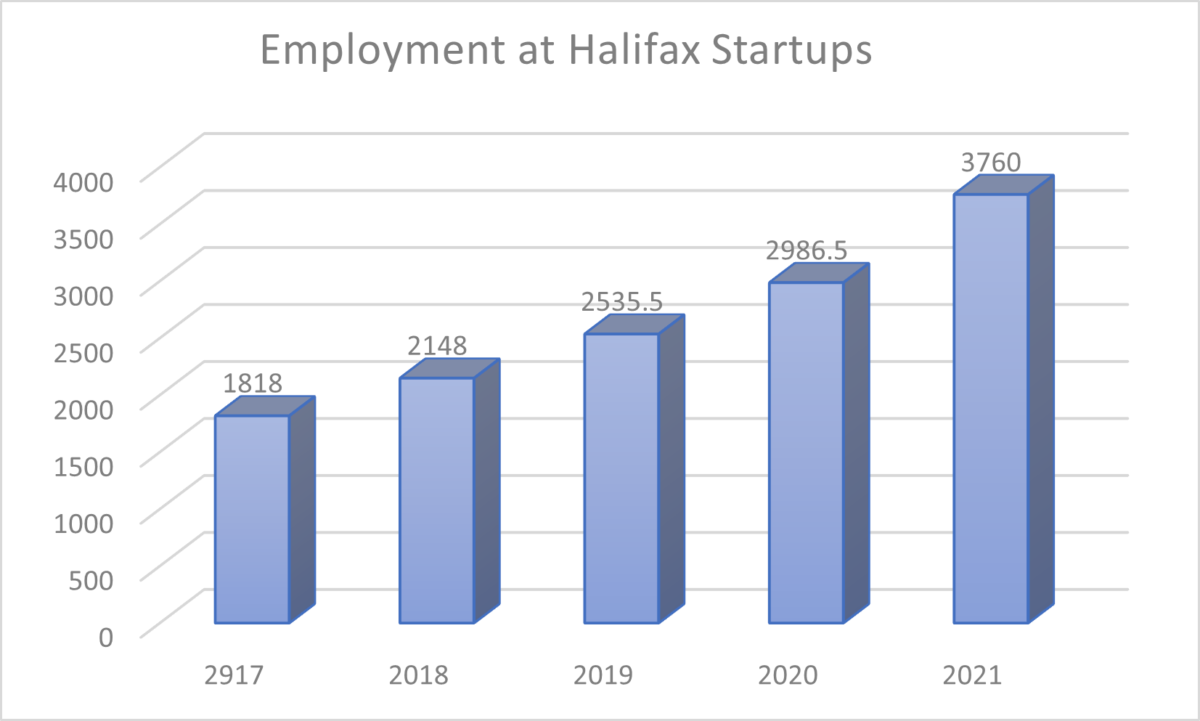
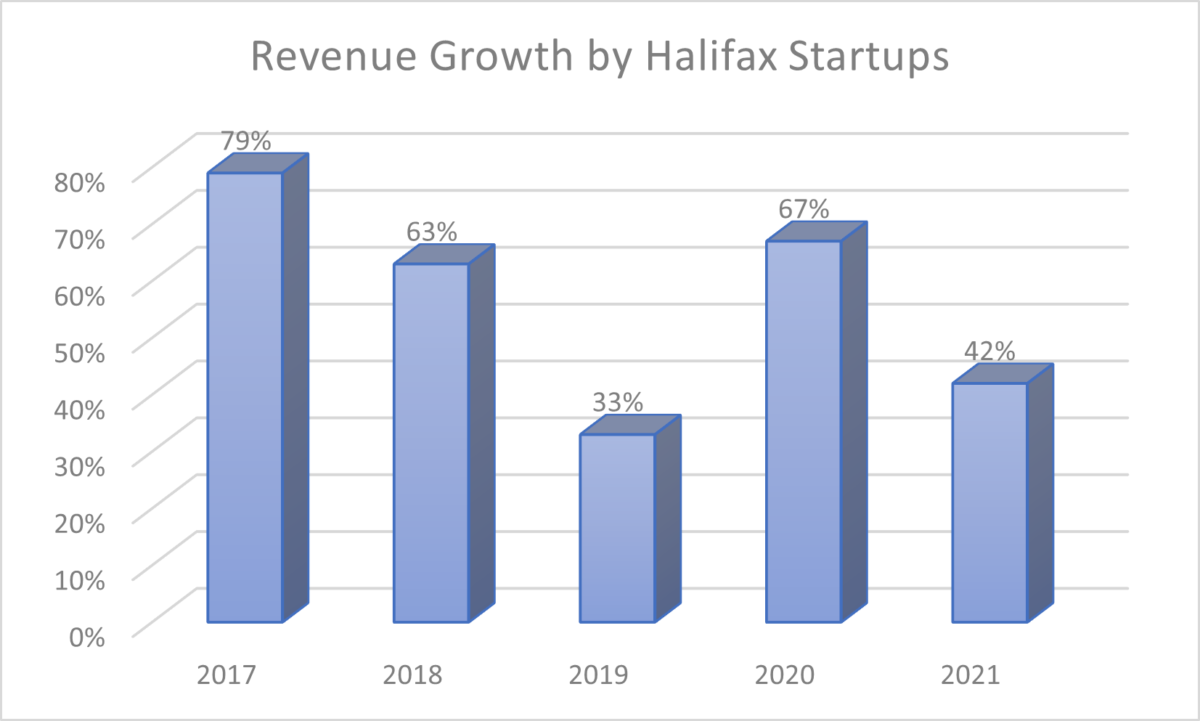
Of course, not all was wine and roses in Halifax’s startup community last year. Early-stage companies in particular faced challenges due to mounting costs, especially payroll for tech employees. Fewer companies launched than in any of the previous five years. The 34 new companies could not outdo the 40 failures. Entrevestor identified a few older companies that emerged from “stealth mode” during 2021, so the overall number of companies based in HRM in its databank remained the same as the previous year at 289.
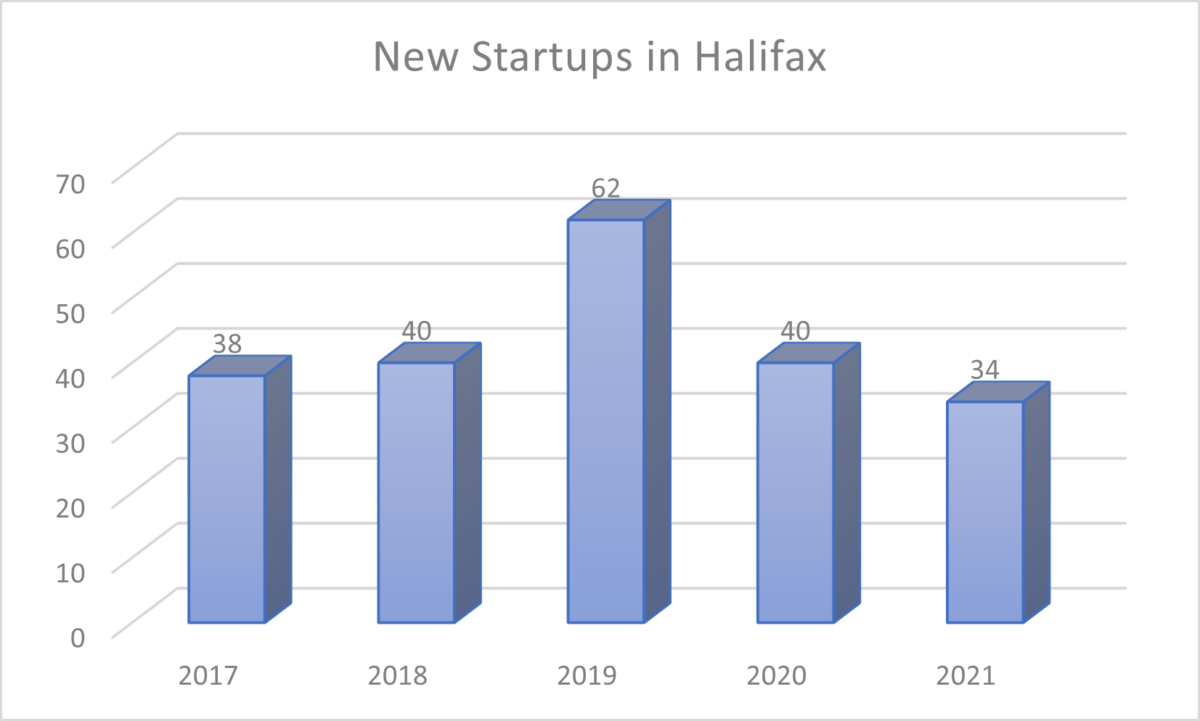
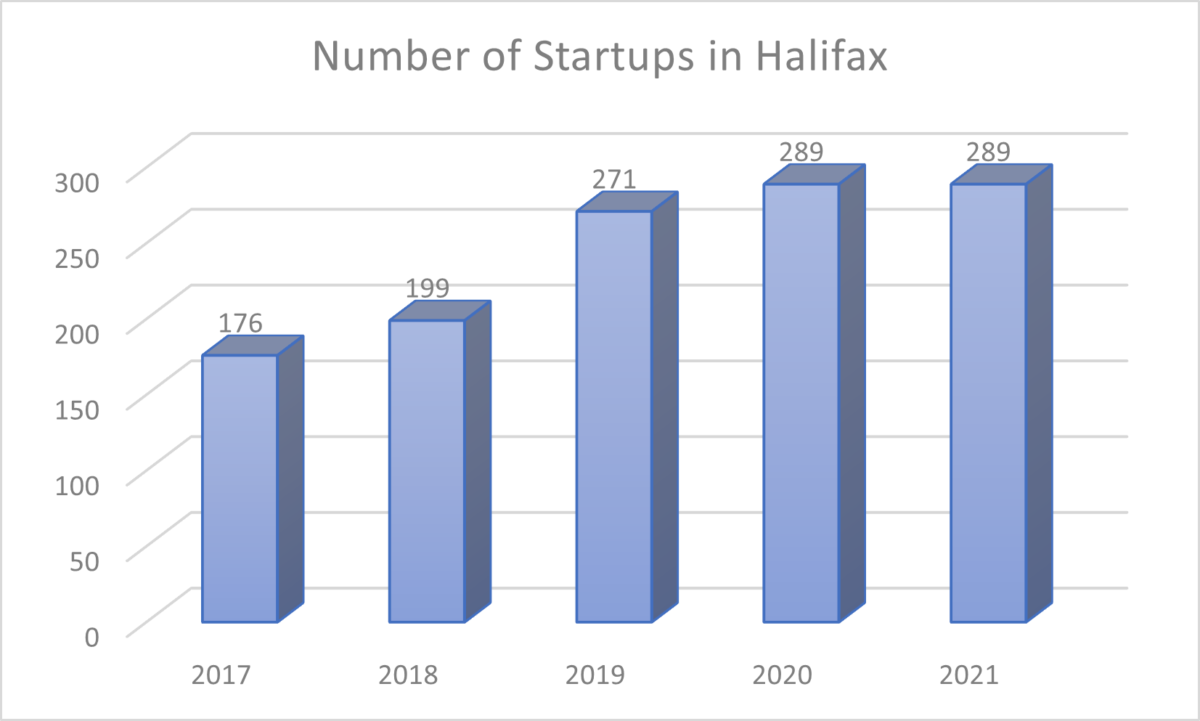
In spite of these challenges, the ecosystem for startups in the Halifax area and Atlantic Canada overall continued to evolve – especially in ocean technology. The Centre for Ocean Ventures and Entrepreneurship, or COVE, in Dartmouth has become a model for private-sector-led oceantech outposts, being studied by similar organizations around the world. CDL Oceans graduated a cohort of startups from Atlantic Canada and other parts of the world. And groups like Sandpiper Ventures and The Tribe Network are encouraging diversity in the community.
For the first time in its 2021 report, Entrevestor produced diversity metrics for the Atlantic Canadian startup community, and also has data on the representation of specific groups in the Halifax entrepreneurial scene. In Halifax, immigrants are founders, co-founders or CEOs of 70 startups, accounting for 24 percent of the city’s startup community. This is a great achievement for a city that had trouble retaining immigrants just a decade ago. Women-led companies accounted for one-fifth of the startups, an improvement over previous years when the level of representation was closer to 14 percent. Entrevestor found other groups remain under-represented in forming innovation-driven startups. Companies with Black founders/CEO comprised 1.7 percent of the total, while 0.7 percent of the companies had Indigenous or LGBTQ leadership.
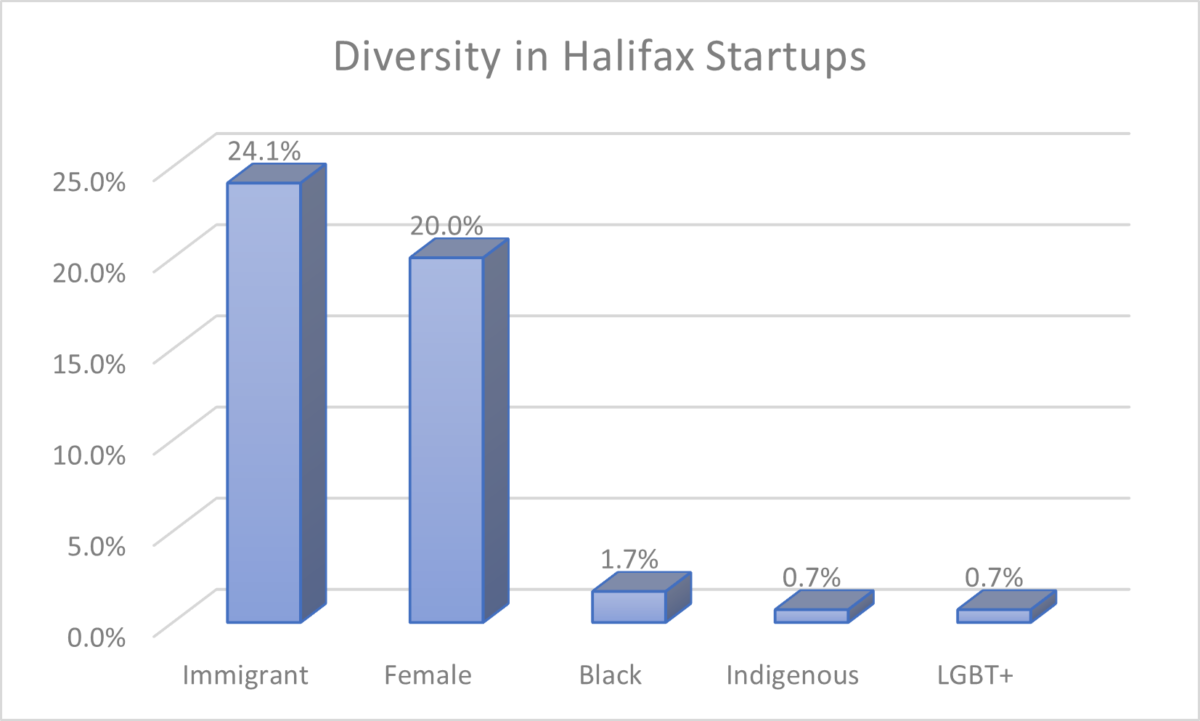
Meanwhile, Meta continues to grow, to a large extent because of its acquisitions. In the 12 months after its Nasdaq listing, the Dartmouth company bought Nanotech Security Corp. of Burnaby, BC, which makes the anti-counterfeit material found in banknotes, for $90.5 million, and agreed to buy Oxford, UK-based Plasma App Ltd., which specializes in the high-speed coating of objects, for US$20 million. It also bought the assets and intellectual property of Devens, Mass.-based Optodot Corp. for US$48.5 million, which will allow Meta to enter the market for next-generation battery materials.
To finance the Optodot acquisition, Meta announced in late June it would sell US$50 million of shares, which means that for the first half of 2022 – just as in the full year 2021 – Meta notched up the biggest fundraising in the Atlantic Canadian startup community.